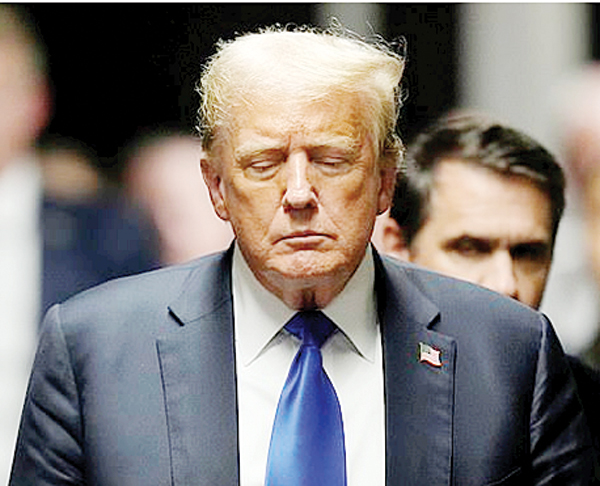The Supreme Court ruled on Monday that Donald Trump may claim immunity from criminal prosecution for some of the actions he took in the waning days of his presidency in a decision that will likely further delay a trial on the federal election subversion charges pending against him, Cable News Network reported.
In the most closely watched case before the Supreme Court this year, the ruling rejects a decision from a federal appeals court in February that found Trump enjoyed no immunity for alleged crimes he committed during his presidency to reverse the 2020 election results.
The Supreme Court’s decision was 6-3, with the court’s liberals in dissent. Justice Sonia Sotomayor issued a lengthy and strongly worded dissent in which she excoriated the court for its decision.
Chief Justice John Roberts wrote in Monday’s opinion, “We conclude that under our constitutional structure of separated powers, the nature of presidential power requires that a former president have some immunity from criminal prosecution for official acts during his tenure in office. At least with respect to the President’s exercise of his core constitutional powers, this immunity must be absolute.”
“The President enjoys no immunity for his unofficial acts, and not everything the President does is official. The President is not above the law,” Roberts also wrote.
The chief justice said the trial court will have to assess what of Trump’s alleged conduct is immunized under the new test handed down by the high court, and the opinion said that additional briefing will be needed for the trial court to do so.
“We accordingly remand to the District Court to determine in the first instance — with the benefit of briefing we lack — whether Trump’s conduct in this area qualifies as official or unofficial,” wrote Roberts, who said there was a lack of “factual analysis” in the previous lower court opinions rejecting Trump’s immunity.
Justice Amy Coney Barrett expressed frustration with how the court was sending the case back down for more proceedings.
“I would have framed the underlying legal issues differently,” Barrett wrote in a concurrence. She suggested that because Trump’s wholesale challenge to the indictment had failed, at least some of the case could go forward.
“A President facing prosecution may challenge the constitutionality of a criminal statute as applied to official acts alleged in the indictment,” Barrett wrote.
“If that challenge fails, however, he must stand trial,” she said.
She took issue with how the court had ruled that evidence from Trump’s official acts should be excluded from the trial, writing that there was no reason to depart from the “familiar and time-tested procedure” that would allow for such evidence to be included.
The decision was quickly welcomed by Trump, who called it a “BIG WIN FOR OUR CONSTITUTION AND DEMOCRACY” on Truth Social. His legal team says they believe it is possible that special counsel Jack Smith’s case is now completely undermined because any communication Trump had with then-Vice President Mike Pence or Department of Justice officials could be considered official, precluding it from being introduced at trial.
The team also said it could even help Trump in the classified documents case, though the initial views do not necessarily mean that’s how the legal process will ultimately play out.
In a call with the media following the court’s ruling on Monday, the Biden campaign attacked the “conflicted and compromised” Supreme Court, accusing the justices of handing Trump “the keys to a dictatorship.”
For his part, the former president – who is facing four sets of criminal charges – accuses Biden of weaponising the justice system against him.
Trump is the first former US president to face criminal charges. Late in May, he was found guilty of falsifying business documents in relation to a hush-money payment made to adult film star Stormy Daniels in the run-up to the 2016 US presidential election.
ALSO READ: Nigeria problems not institutional, but societal disorder — ex-VC LASU
